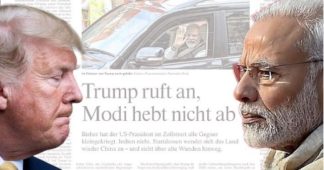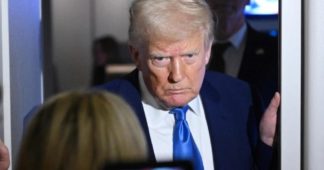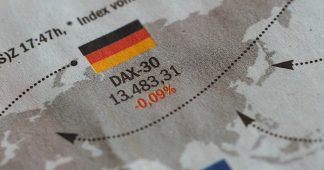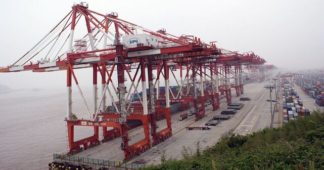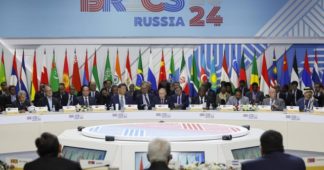Trump imposes 50% tariff on India as punishment for buying Russian oil
By Callum Jones in New York and Penelope MacRae in Delhi
Aug 27, 2025
Donald Trump imposed 50% tariffs on most US imports from India, making good on a threat to punish one of the world’s largest economies over its purchases of discounted Russian oil.
The tariffs, which came into effect just after midnight on Wednesday in Washington, risk inflicting significant damage on the Indian economy and further disrupting global supply chains.
US tariffs of 25% on Indian goods went into force earlier this month, but Trump announced plans to double the rate, citing New Delhi’s purchases of Russian oil, which the White House has argued are indirectly funding Russia’s war against Ukraine.
The US president has significantly increased US tariffs on goods from much of the world since re-entering the White House in January, straining relations with economies of allies and rivals and fueling fears of higher inflation.
This latest move leaves Indian exporters facing among the highest US duties Trump has slapped on goods from overseas. Brazil is also grappling with 50% tariffs on its exports to the US.
Ministers in India argue the country has been unjustly singled out for its trade relationship with Russia and officials caution the country will likely work more closely with Moscow and Beijing – and drift further from Washington – as a result.
Most Indian exports to the US (worth $87.3bn to the US last year, according to the US trade representative) now face steep duties, although some key products including smartphones are set to be spared, for now.
The action, confirmed in a notice by the US Department of Homeland Security earlier this week, prompted some economists to predict a precipitous fall in trade between the two countries.
“I don’t care what India does with Russia,” Trump claimed on Truth Social, his social network, last month. “They can take their dead economies down together, for all I care.”
In India, the mood has been defiant. The country’s government has refused to halt purchases of Russian oil, and Narendra Modi urged Indians to buy local.
“All of us should follow the mantra of buying only ‘made in India’ goods,” the prime minister said on Tuesday, encouraging shopkeepers to display big signs promoting domestic products. “Pressure on us may increase [from the tariffs], but we will bear it,” he added.
Goldman Sachs’s chief India economist, Santanu Sengupta, warned that sustained 50% levies could push gross domestic product (GDP) growth below 6%, from a forecast level of around 6.5%. Rival exporters from Turkey to Thailand, facing lower US tariffs, are already scooping up American buyers with offers of cheaper goods.
About 30% of India’s exports to the US – including pharmaceuticals, electronics, raw drug materials and refined fuels – worth $27.6bn, remain duty-free. But sectors like textiles, gems and jewellery, and seafood, long reliant on the American market, face shrinking order books. “At a 50% tariff, it is very difficult to export,” Sengupta said.
The effects are already visible. The Federation of Indian Export Organisations (FIEO) reported textile and apparel manufacturers in Tirupur, Delhi and Surat had already halted production due to “worsening cost competitiveness”.
“Indian goods have been rendered uncompetitive compared to competitors from China, Vietnam, Cambodia, the Philippines and other south-east and south Asian countries,” said FIEO president SC Ralhan.
Continue reading at www.theguardian.com
We remind our readers that publication of articles on our site does not mean that we agree with what is written. Our policy is to publish anything which we consider of interest, so as to assist our readers in forming their opinions. Sometimes we even publish articles with which we totally disagree, since we believe it is important for our readers to be informed on as wide a spectrum of views as possible.
